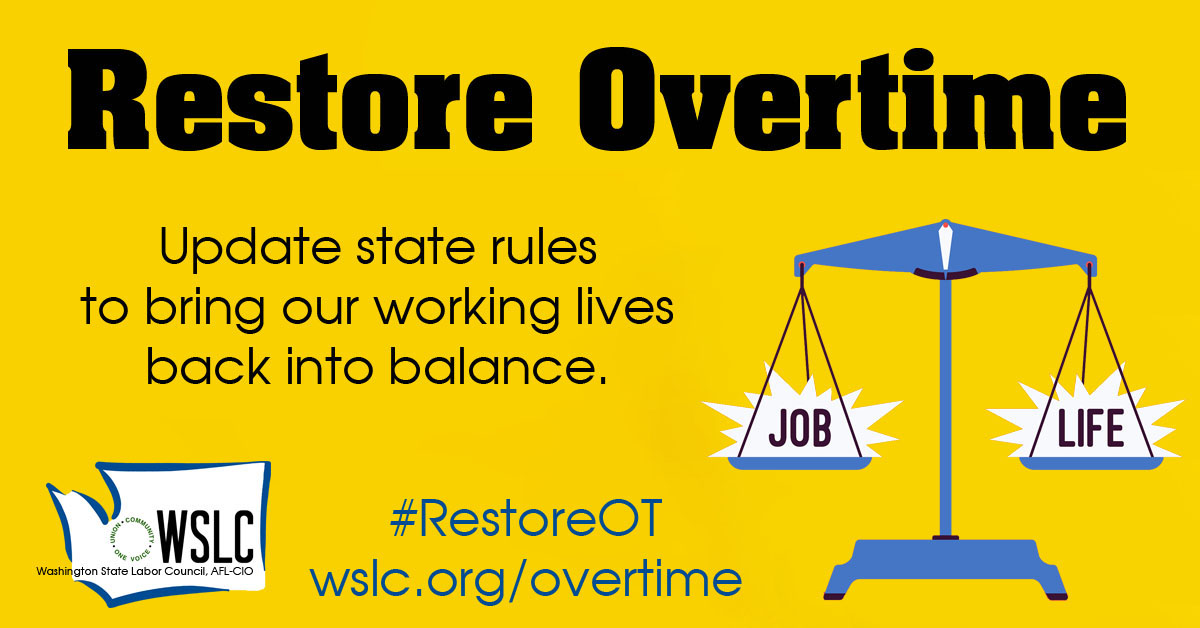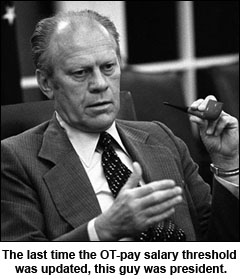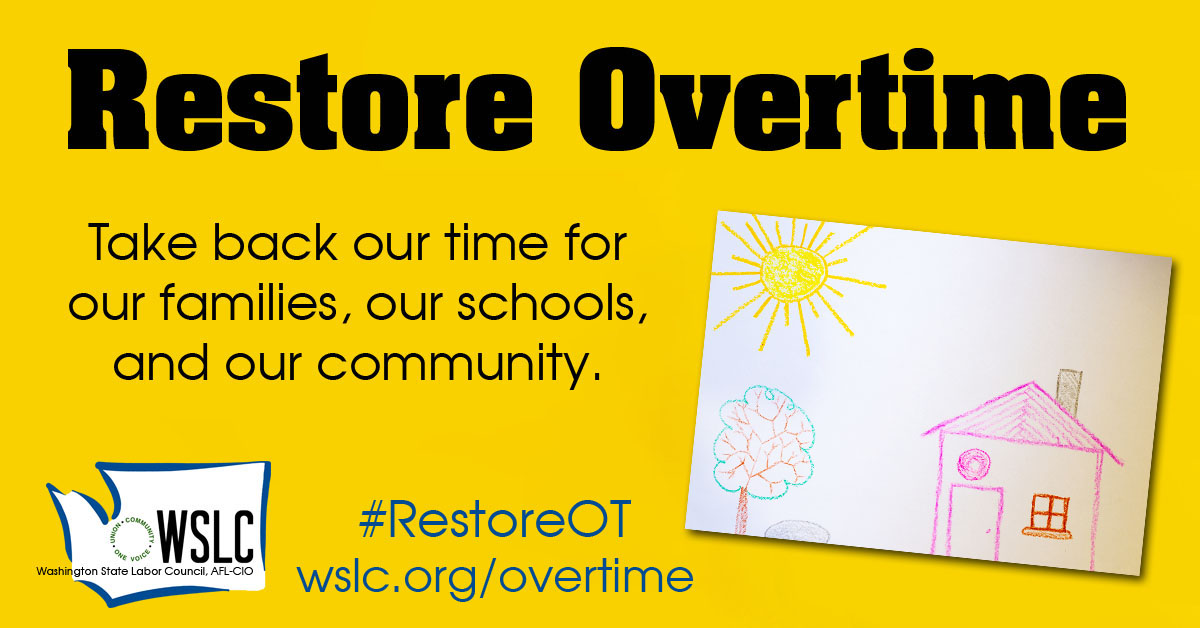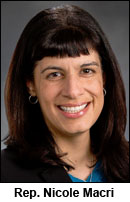OPINION
It’s time for Washington state to restore the 40-hour workweek
New state rules will finally reverse the trend toward less overtime pay. And that will be good for everyone.
By REP. NICOLE MACRI
 (July 2, 2019) — Washington state just took a big step to bring back the 40-hour workweek: The Department of Labor & Industries (L&I) has released a bold plan to restore overtime protections to hundreds of thousands of salaried workers in our state. Under L&I’s plan, workers paid less than 2.5 times the minimum wage (about $70,000 per year) will get overtime pay when they work overtime hours, regardless of their job title, and regardless of whether they’re salaried or hourly.
(July 2, 2019) — Washington state just took a big step to bring back the 40-hour workweek: The Department of Labor & Industries (L&I) has released a bold plan to restore overtime protections to hundreds of thousands of salaried workers in our state. Under L&I’s plan, workers paid less than 2.5 times the minimum wage (about $70,000 per year) will get overtime pay when they work overtime hours, regardless of their job title, and regardless of whether they’re salaried or hourly.
This is a huge step forward that will return millions of hours to hundreds of thousands of underpaid and overworked people in our state. It restores the promise of one of the most fundamental workplace rights: the right to a 40-hour workweek, with time-and-a-half pay when you work additional hours.
It’s about time.
In the four decades since our state last updated overtime rules, our economy has added substantial numbers of salaried service, nonprofit, and office jobs, but our labor standards have failed to keep up. And we’ve seen the results: The average salaried worker reports putting in 49 hours a week, according to a Gallup survey. More than a quarter clock more than 60 hours a week. And almost none gets paid an extra dime for all those extra hours.
In all too many cases that’s a big part of why companies take so much time from so many salaried workers — because they’re working for free.
 It hasn’t always been this way. Back in the 1970s — the last time our state overtime rules were updated — more than 60% of salaried workers nationally received overtime pay when they worked overtime hours. Today less than 10% do. And it’s not because we’re working less.
It hasn’t always been this way. Back in the 1970s — the last time our state overtime rules were updated — more than 60% of salaried workers nationally received overtime pay when they worked overtime hours. Today less than 10% do. And it’s not because we’re working less.
In fact, more and more of us are working more and more hours, and it’s having severe impacts on our families and our communities. When your workweek never ends, your life becomes a constant scramble. The pressure of maintaining 24/7 availability can stress family relationships and bring severe health consequences, including increased risk of depression and higher rates of heart disease and stroke. Parents working long and irregular work hours has even been shown to negatively affect children’s school performance.
Our state’s plan to restore overtime protections will help reverse these trends by ensuring employers once again treat their employees’ time like it counts for something.
In my role on the employer side at a nonprofit service provider, I understand that many smaller employers and nonprofits can be hesitant to make the changes involved in implementing new labor standards. They often depend on long hours from committed workers to get the job done, and that can be a hard habit to break. That’s part of the reason why the state has opted to phase-in the plan to restore overtime rights over the next several years.
But much as with the $15 minimum wage, I also know that as we phase in this change, we’ll reap the benefits as well. Employers will see lower turnover rates, higher productivity and improved health and safety on the job. And our economy will grow when more workers have more time and more money.
 The impacts outside of work will be even greater. Reducing the time spent on the job means more people will have more time to spend with their families and give to their communities. More people will have more time to go back to school and pursue their dreams. And more people will have more time to volunteer for nonprofits and just live their lives.
The impacts outside of work will be even greater. Reducing the time spent on the job means more people will have more time to spend with their families and give to their communities. More people will have more time to go back to school and pursue their dreams. And more people will have more time to volunteer for nonprofits and just live their lives.
As a state legislator and a nonprofit employer, I’m proud to support our state’s bold plan to restore overtime protections. It’s time to bring back the promise of the 40-hour workweek and ensure the return of a fundamental right every worker deserves: the right to go home when the day is done and have a life outside work.
 Nicole Macri is a Democratic state representative in Seattle’s 43rd Legislative District. She is also the deputy director for the Downtown Emergency Service Center (DESC) in Seattle. This opinion column was originally posted at Crosscut and appears at The Stand with the author’s permission.
Nicole Macri is a Democratic state representative in Seattle’s 43rd Legislative District. She is also the deputy director for the Downtown Emergency Service Center (DESC) in Seattle. This opinion column was originally posted at Crosscut and appears at The Stand with the author’s permission.





